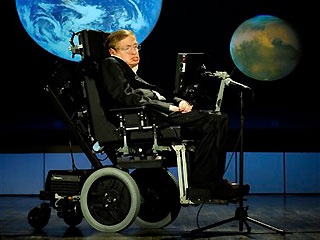
Stephen Hawking (see his message below) is but one example of why the term “disability” is a relative term in its impact on on the disabled and the observer. Hesitate to characterize anyone as having a disability. Such can be perceived by observers as a limitation as well while the “disabled person” may have overcome or even exceeded beyond it. Frequently people who have some form of impairment develop the other senses and/or physical capacity to compensate, which itself can evolve into a talent beyond “normal” people. The key though is that such individuals are provided the opportunity to overcome and perhaps exceed our societal and personal expectation. The “normal” person’s perception of what is possible by the disabled is frequently the limitation and the obstacle to not only self-sufficiency but outsized contributions. That is where the work the UN and related agencies can be instrumental in changing laws and perceptions.
UN Statement (From UN News Centre)
More than one billion people worldwide experience some form of disability, the United Nations and the World Bank said today in a report that calls for the elimination of barriers that often force the people with disabilities to “the margins of society.”
The World Report on Disability, developed by the World Health Organization (WHO) and the World Bank, with contributions from over 380 experts, urges governments to “to step up efforts to enable access to mainstream services and to invest in specialized programmes to unlock the vast potential of people with disabilities.”
“Disability is part of the human condition,” said WHO Director-General Margaret Chan at a ceremony in UN headquarters to launch the report. “Almost every one of us will be permanently or temporarily disabled at some point in life.”
“We must do more to break the barriers which segregate people with disabilities, in many cases forcing them to the margins of society,” Dr. Chan said.
Etienne Krug, a WHO disability specialist, suggested that the barriers themselves are a cause of disability.
“Disability results a lot from the barriers that society erects for people with disabilities,” he said, “barriers such as stigma and discrimination; such as lack of access to health services and rehabilitation services or problems of access to transportation and buildings and information services.”
Speaking to UN Radio, Dr. Krug called for the “mainstreaming of all services. That means to make everything accessible. Children with disabilities shouldn’t go to school to a segregated school, but rather be integrated in a normal school as much as possible.
“Employment should be accessible to people with disability so that they don’t have to live in poverty or from charity. Health services should be designed so that they also respond to the needs of people with disabilities. So basically all services should be accessible to people with disabilities.”
The famed British theoretical physicist Stephen Hawking, who suffers from amyotrophic lateral sclerosis (ALS), told the launch via video: “We have a moral duty to remove the barriers to participation for people with disabilities, and to invest sufficient funding and expertise to unlock their vast potential. It is my hope this century will mark a turning point for inclusion of people with disabilities in the lives of their societies.”
The barriers mentioned in the report include: stigma and discrimination; a lack of adequate health care and rehabilitation services; and inaccessible transport, buildings and information and communication technologies.
“As a result, people with disabilities experience poorer health, lower educational achievements, fewer economic opportunities and higher rates of poverty than people without disabilities,” WHO said.
The report recommended that governments and their development partners provide people with disabilities access to all mainstream services, invest in specific programmes and services for those people with disabilities who are in need, and adopt a national disability strategy and plan of action.
In addition, governments “should work to increase public awareness and understanding of disability, and support further research and training in the area. Importantly, people with disabilities should be consulted and involved in the design and implementation of these efforts.”
Nearly 150 countries and regional organizations have signed the Convention on the Rights of Persons with Disabilities (CRPD), and 100 have ratified it, committing them to removing barriers so that people with disabilities may participate fully in their societies, WHO said.
END of STATEMENT
By Ambassador Muhamed Sacirbey
Facebook – Become a Fan at “Diplomatically Incorrect”
Twitter – Follow us at DiplomaticallyX

